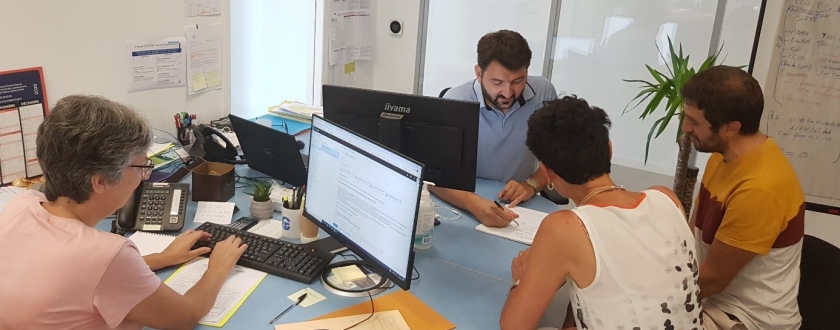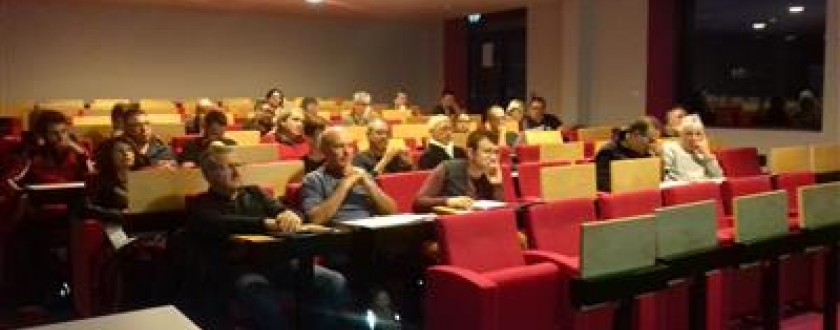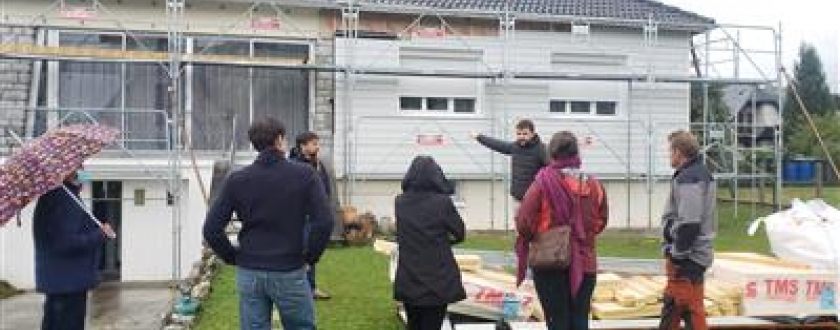Energy efficiency in housing
Description of the case study
The 2015 law on energy transition for green growth establishes the number of renovated housing units per year at 500,000. The Regional Energy Renovation Platforms (PTRE) implemented by the inter-municipal authorities are contributing to the achievement of this goal.
Designed as a local public space for individuals and professionals, the Valle d’Ossau Municipality Association and Haut-Béarn Municipality Association’s PTRE provides technical consulting, legal support, and economic aid for projects meant to improve the energy performance of housing units and buildings.
This initiative is being carried out in:
• The Valle de Ossau Municipality Association (10,000 residents)
• The Haut-Béarn Municipality Association (33,000 residents)
• The País de Nay Municipality Community (planned from 1 January 2022)
The major challenge of this initiative is implementing actions meant to improve building energy efficiency, while still supporting awareness-raising and dissemination actions that can reach the public and serve as an exemplary model.
As of now, attempts are being made to motivate users to carry out a global project (a package of projects) rather than specific projects (a single project such as installing a pellet heater, for example); global projects are the most efficient way of reducing energy consumption, and the impact on climate as a result.
This platform offers project management assistance and support through the following protocol:
• First contact was made initially by telephone to contextualise the desired project. A target of 520 telephone meetings was established.
• A second, personalised in-office consulting meeting serves to define work to be carried out, possible means of financing, and providing a list of RGE professionals (environmental guarantor recognition), an essential requirement in terms of accessing subsidies. The RGE label ensures the cross-compliance of energy renovation aid. The forecast for 2021 was 360 personalised consulting sessions.
• The possibility of carrying out an energy audit to establish the best renovation scenario possible is also offered. A target of carrying out 30 energy audits was established.
Since 2016, some 2000 renovation projects have been supported and, specifically, so far in 2021, there have been:
• 834 telephone meetings
• 318 personalised consulting sessions
• 9 energy audits
No communication action has been carried out due to the large number of contacts, which is much higher than the targets initially planned.
On the other hand, two meetings have been organised with “Pros du Bâti” professionals, which have met with more than half of the area’s RGE artisans.
The case was developed, implemented, and partly funded as a climate change adaptation measure.
Valle de Ossau Town Communities - Haut-Béarn Town Community - National Housing Agency - Departmental Council 64 - Region - State
Additional Information
Communauté de Communes de la Vallée d'Ossau, Communauté de Communes du Haut-Béarn, Région Nouvelle-Aquitaine, Conseil Départemental des Pyrénées Atlantiques, and Etat.
Success factors:
- Identifying the service in the region
- The network advisor’s good understanding of the project presented by the individual
- The platform’s advisers have a technical understanding and good knowledge of the subsidies
Limiting factors:
- Lack of time to help convince people of the commitment to carry out full renovations
- Scarce labour force in the construction sector
Cost: 80,000 euros/year, 64% financed by the State and Region Advantages:
- Reducing individual energy bills, thereby increasing their purchasing power.
- Increased comfort in homes during winter and summer months.
- Increased housing value - reduced greenhouse gas emissions.
- Maintaining and creating jobs in the region's construction sector.
- Significant economic repercussions for local artisans and local authorities (CFE, etc.).
- Forecast of future regulatory limitations
Since January 2021, this energy renovation platform has been part of the Public Service for Housing Energy Performance. In 2022, all local authorities in France will be required to have a similar service.
01/06/2016 (in progress)
Reference information
PYRENEAN CLIMATE CHANGE OBSERVATORY
Avenida Nuestra Señora de la Victoria, 8
22.700 - Jaca
Huesca - España
+34 974 36 31 00
info_opcc@ctp.org







